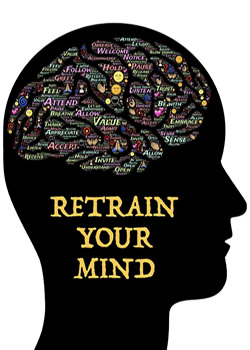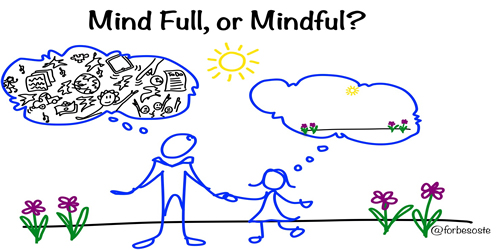Mindfulness

Mindfulness is sometimes described as the awareness that emerges through paying attention on purpose, in the present moment, and non-judgmentally to the unfolding of experience moment by moment.
Daily stress is now a normal part of life. While we can’t change the external stress of daily life we can learn to deal with it so that it does not have a detrimental effect on our quality of life. When we are stressed, anxious or depressed our thoughts, troubles and worries can often add to our problems. In our minds we can often have a running commentary filling us up with worries, fears, hopes and desires adding to the experience of stress.
Research evidence over the last 30 years proves that regular mindfulness practice changes the activity in our brain which coincides with improved concentration, mood regulation including reduced worrying, ability to choose appropriate responses and pain reduction.
In our busy multitasking lives we are often rushing from one task to another feeling that we are always short of time. So even as we are completing one task our minds race ahead thinking of the next. Alternatively an event occurs in our life which has a strong meaning for us and our thoughts continuously back track with questions such as why did that happen? If only it could have different or maybe I could have done some that would have changed the outcome. So repeatedly replaying the past and often experiencing unpleasant feelings with resultant sadness or perhaps anger.
So in our daily lives we are often in ‘futuremind’ or ‘pastmind’ mode and rarely in the ‘presentmind’ which is the only time when we are fully conscious or aware. In our ‘pastmind’ state repeated thinking will not change the outcome but will make us more stressed and unhappy. In the future mind state we dream and hope of a certain outcome yet we know that no one can predict the future. Yet our minds often continue to do this. The more we do this the more the mind becomes trained to repeat these patterns often leading to stress and resultant mental and physical distress and pain. In these mind states we tend to function on ‘automatic pilot’ reacting to things rather than considered responses so often making poor choices such as overeating , smoking, overconsumption of alcohol , being sedentary rather then moving , getting angry and or feeling anxious, sad or depressed etc. This becomes our default mode as confirmed by research using brain scans.
Training in mindfulness allows us overtime to alter these habitual reaction patterns to considered responses that are likely to beneficial for our physical and mental health and help us to achieve our wellbeing potential in life generally.
Mindfulness is a skill that can be learned like any other. It’s like learning to drive a car, cook a meal or play a musical instrument. The more you practice the more you develop your awareness helping you to see things as they really are and making the best choices for you.
Free 2 hour Introductory Mindfulness training classes are offered at our clinics. Fee based MBSR 8 week courses are also available.
Please contact us for further information.

